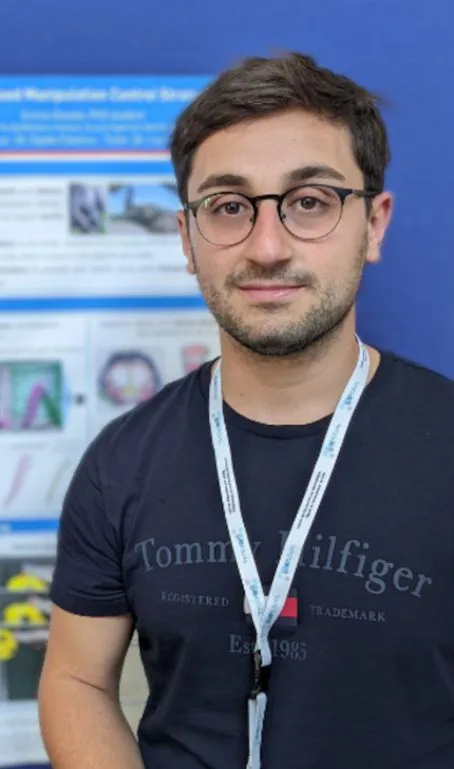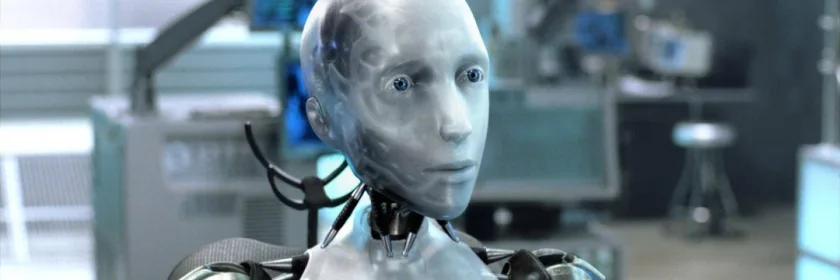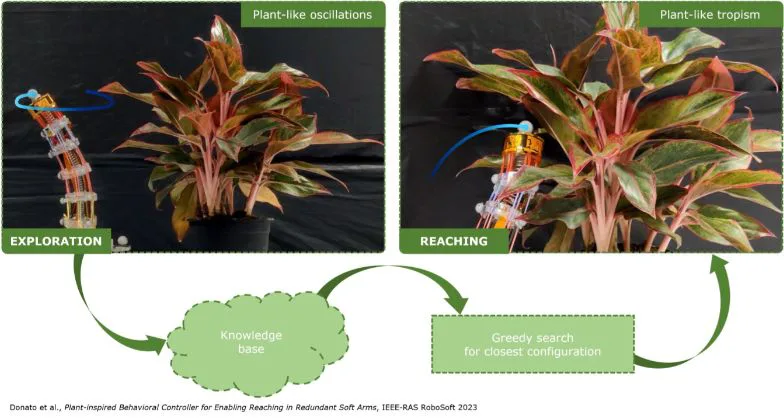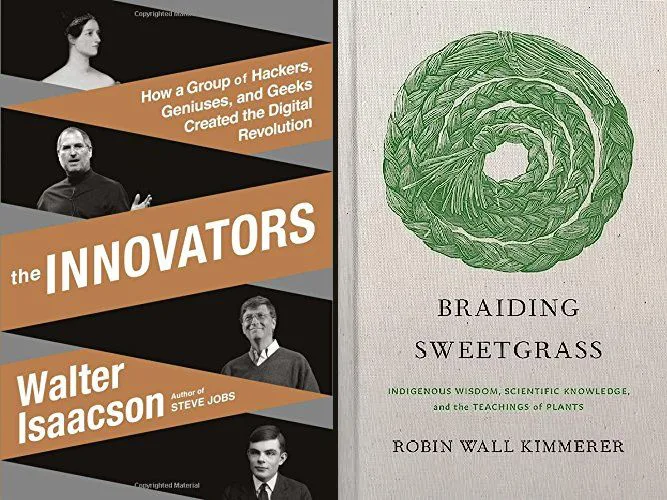
Dr. Enrico Donato is a Doctoral Researcher at the Brain-Inspired Robotics (BRAIR) Laboratory of The BioRobotics Istitute, Scuola Superiore Sant’Anna.
With an insatiable appetite for scientific exploration, he delves deep into the fascinating realm of soft robotics. His mind dances with algorithms, composing intricate control models that breathe life into these mechanical marvels.
His boundless curiosity and expertise have garnered him a place in prestigious European projects. As an instrumental player in the symphony of progress, he lends his brilliance to the harmonious crescendos of Proboscis and Growbot.
These endeavors unite minds and resources, aiming to unravel the mysteries of nature and mimic its wondrous designs. Please scroll down to know more about Dr. Donato’s ideas and research 🙂

What inspired you to pursue research in the intersection of neuroscience and robotics? How do these fields complement each other in your work?
While I do harbour a fascination for neuroscience, my main focus lies in bio-inspired robotics, particularly in the realms of control systems, design, and sensing.
Tactile sensing, or the ability of a robot to interact with its environment through touch, holds a special place in my research.
Would you please explain how brain-inspired robotics differs from traditional approaches to robotics?
What attracts me to bio-inspired robotics is nature’s infinite trove of problem-solving strategies, from navigating challenges in movement to environmental interaction. By harnessing these strategies, we can enhance the capabilities of robotic systems significantly.
Bio-inspired robotics, unlike its traditional counterparts, doesn’t conform to rigid models and algorithms. Instead, it adapts to the rich tapestry of solutions nature offers, infusing a sense of adaptability and fluidity uncommon in traditional robotics.
Can you discuss any recent breakthroughs or advancements in soft robotics that have caught your attention? Also, I’m curious to know about your recent research: plant-inspired controller for robotic arms.
My recent work in bio-inspired robotics involves developing a plant-inspired controller for robotic arms.
The decentralized control seen in plants, despite the lack of a central nervous system, offers intriguing insights for novel control strategies.
In addition, I’m delving into the study of elephant trunks, focusing on how they coordinate their musculature to maneuver their trunks efficiently. The learnings from this research will inform the design and control of soft robotic prototypes that can perform under significant deformation and force.

What are some of the challenges or limitations you have encountered in developing brain-inspired robotic systems?
Challenges in bio-inspired robotics are plentiful. Translating nature’s complex systems into efficient robotic designs and emulating biological tactile sensing in robots are a few of the obstacles we face.
Building perception systems and controllers that can accurately interpret and utilize tactile information remains a significant challenge.
How do you envision the future of soft robotics and AI? Are there any specific areas or applications that you believe will see significant progress or have a profound impact in the coming years?
Looking forward, I envision major advancements in how bio-inspired robots interact with their environments. This will revolutionize sectors from healthcare to exploration, providing robust solutions in unpredictable situations.
I aim to contribute particularly to the explainability of AI, to provide a clearer understanding of AI outputs and shift focus from models to the actual data.
Are there any emerging materials or fabrication techniques that you find particularly promising for advancing the field of soft robotics?
Advancements in materials and fabrication techniques, especially in soft and responsive materials and 3D and 4D printing technologies, are poised to transform robotics.
What are your other interests besides Bionics… reading, painting, gardening, skiing maybe?
Outside of Bionics, I find joy in cooking, catching the latest TV series, relaxing by the seaside, travelling, and making new acquaintances. These diverse pursuits inject a dose of excitement and variety into my life!
Someone comes up to you and says, “I wanna be just like you. I want to be a BioRobotics Researcher”, what advice would you give?
For those aspiring to dive into BioRobotics, remember to maintain an open mind, be relentless in your pursuit of knowledge, and embrace the interdisciplinary nature of this field. Indeed, even if your theoretical background is lacking, the experience with robots and algorithms will provide invaluable learning opportunities.

Quick bits:
My favourite movie quote:
“In the face of overwhelming odds, I’m left with only one option, I’m gonna have to science the hell out of this.” – The Martian.
Superhero power of choice:
The gift of universal language comprehension.
The favorite scientific innovation of the 21st century:
The rise of quantum computing.
My 2033 TED Talk:
“Embracing the Unpredictable: Bio-Inspired Robots in Real-World Scenarios”.
Book recommendations for 2023:
“The Innovators” by Walter Isaacson, and “Braiding Sweetgrass” by Robin Wall Kimmerer.
(Wow! Thank you, Dr. Donato, it has been a real pleasure! Your work is truly an inspiration. We look forward to visit you again and see more of your innovative research. Till then, we wish you all the very best for your future endeavor.)



